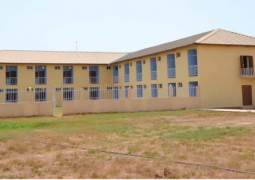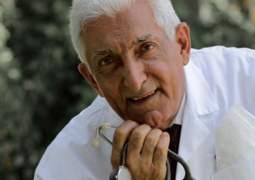The particulars of offence alleged in count one that the accused, Haruna Manneh, on 28 August 2012 at Brikama Bafuloto Highway in the Kombo Central District of the West Coast Region, stole cash amount of US$2, 300 equivalent to D115, 000, the property of one Mr Jin Li.
The accused was also alleged in count two to have, on the same date and year and at the same place, with fraudulent tricks or device, to have obtained from Mr. Jin Li an amount of D15, 000 which would have being paid or delivered to his uncle, but for such trick or device he said he did not receive the said sum.
He was further alleged in count three to have, some time in the year 2012 at Brikama Bafuloto Highway in the Kombo Central District of the West Coast Region, stolen one vehicle of mark BMW and registration number BJL 2678–F valued at D120, 000, being the property of Mr. Jin Li.
In his judgment, the trial magistrate stated that the accused person was arraigned before the court on 9 June 2015 and he pleaded not guilty to the offences alleged by the prosecution.
To discharge the burden of proof required in this case, the prosecution called three witnesses and tendered four exhibits, he said.
The facts relied upon by the prosecution were sufficiently elicited from the testimonies of the witnesses, and the accused also testified and also denied the allegations against him.
“I have carefully listened to the proceedings and read the testimonies and exhibits adduced in this trial where the prosecution alleged that the accused, Haruna Manneh, stole US$2,300, duped the complainant of D15, 000 and theft of a motor vehicle BJL 2678-F,” said the magistrate.
“It is the cardinal principle in criminal cases that the legal and evidential burden of proving every element of the offence beyond reasonable doubt lies on the prosecution.”
Although the prosecution could do so by either direct or circumstantial evidence, the law requires that in either case, the prosecution bears the legal burden of proving all the elements of the offence necessary to establish the guilt of the accused beyond reasonable doubt, he added.
From the foregoing, he went on, it was clear that the prosecution must succeed on the strength of its own evidence and not allowed to rely on the weakness of the defence or lies told by the accused as the basis for a conviction.
“I, therefore, hold the strong view that to succeed, the prosecution must lead copious, cogent, compelling and unequivocal evidence which unshakably points to the accused as the man who committed the offences,” the magistrate continued.
The prosecution, therefore, has the upshifting burden of proving all the ingredients of the offences with which the accused has been charged, he said.
The amount of US$2, 300 is the sum of money missing from the US$10, 000 allegedly given to the accused person by the first prosecution witness (PW1), he noted.
“Upon a careful study of the prosecution’s witnesses’ testimonies, I observed that the testimonies of PW1 and PW3 are grossly inconsistent,” he said.
“The prosecution has woefully failed to prove the offence as alleged and, I therefore, acquit and discharge the accused person,” declared the magistrate.
Read Other Articles In Article (Archive)



